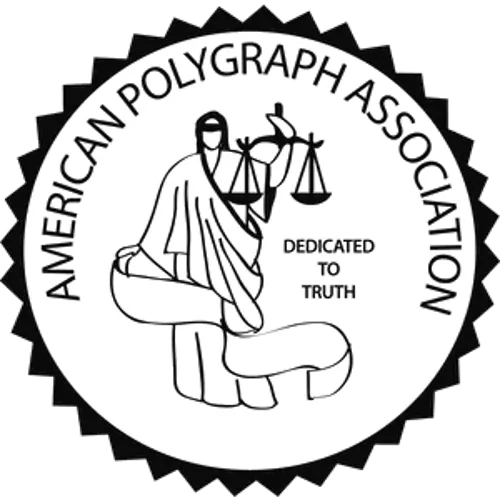Frequently Asked Questions
Experience You Can Trust
What is a Polygraph?
The term "polygraph" has many definitions. The name refers to the manner in which selected physiological activities are simultaneously recorded. Polygraph examiners may use conventional instruments, sometimes referred to as analog instruments, or computerized instruments. A polygraph instrument will collect physiological data from at least three systems in the human body.
Who typically requests a Polygraph?
Polygraph tests are often requested by law enforcement agencies, attorneys, employers, or private individuals involved in legal disputes or investigations, including cases involving theft, fraud, or infidelity.
How long does a Polygraph take?
A polygraph examination can take between 1.5 to 3 hours, depending on the complexity of the situation and the number of questions asked.
What happens during a Polygraph?
A polygraph test typically involves three phases: the pre-test interview, the testing phase, and the post-test discussion. In the pre-test interview, the examiner will explain the process and ask background questions. During the testing phase, you’ll be connected to the polygraph machine and asked a series of questions. Afterward, the examiner will analyze the results and share them with you.
How Accurate is a Polygraph?
Studies have repeatedly shown that an experienced polygraph examiner using correct techniques is 85-95% accurate. Polygraph errors may be caused by the examiner's failure to properly prepare the examinee for the examination or by a misreading of the physiological data on the polygraph charts.
Errors are usually referred to as either a false positive or false negative. A false positive occurs when a truthful examinee is reported as being deceptive, while a false negative occurs when a deceptive examinee is reported as truthful. Since any error is damaging, examiners use a variety of procedures to identify factors that may cause false responses and ensure an unbiased review of the polygraph records. It is important to choose an experienced examiner to avoid having the results challenged at a later date.
What kinds of questions are asked?
The questions will be clear, specific, and related to the purpose of the test. You’ll be briefed on all questions before the test begins. There will be no surprise questions, and you won’t be asked anything irrelevant or that you haven't already seen.
Can nervousness affect the Polygraph results?
Mild nervousness is normal, but it usually doesn't affect the accuracy of the test. The polygraph measures physiological changes related to deception, not everyday nervousness. The examiner will help ensure you’re comfortable and familiar with the process.
Who gets the Results?
Generally, polygraph results can only be released to the examinee and anyone specifically designated by the examinee.
Can Polygraph results be used in court?
The admissibility of polygraph results varies by jurisdiction. Some states allow polygraph evidence if both parties agree, while others do not permit it at all. It's best to consult a legal professional for advice based on your specific situation.
How much does a Polygraph cost?
The cost of a polygraph depends on factors like the complexity and length of the test, the distance the examiner must travel, and if the test must take place inside of a correctional institute. Typical fees range from $400 to $800.
Can I test my Employees?
Yes, you can test your employees; however, you must follow the guidelines of the Employee Polygraph Protection Act of 1988. The EPPA of 1988 contains the following guidelines:
You must have a specific loss, such as items missing from your business or money stolen.
You must have an ongoing investigation; police have been notified, and a report has been filed.
The employee must have had access to the missing items, such as keys to the office or combination to the safe.
You must have reasonable suspicion of the employee you wish to test—access alone is not enough.
Can I refuse to take a Polygraph?
Yes, taking a polygraph test is voluntary. You have the right to refuse or stop the test at any time. However, refusal may have implications, especially in employment or legal contexts.


